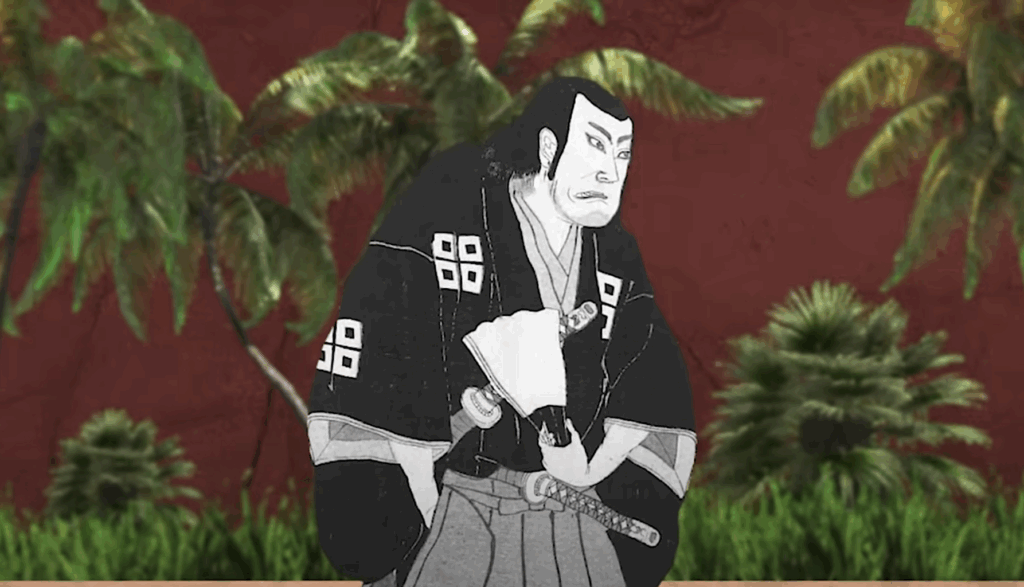21 Rules for Living from Miyamoto Musashi, Japan’s Samurai Philosopher (1584-1645)
Browse the ever-vaster selection of self-help books, videos, podcasts, and social-media accounts on offer today, and you’ll find no shortage of prescriptions for how to live. Much of what the gurus of the twenty-twenties have to say sounds awfully similar, and almost as much may seem contradictory. As in so many fields of human endeavor, the best strategy could be to look to the classics first, and as rules for living go, few have stood more of a test of time than the 21 principles of Dokkōdō, or “The Path of Aloneness,” written by the seventeenth-century swordsman Miyamoto Musashi, who’s said to have fought 62 duels and won them all.
Whatever the actual number was, Miyamoto clearly knew something that most of his opponents didn’t — and for that matter, something that most of us today probably don’t either. It was at the very end of his 60-year-long life, about which you can learn more from the videos from Pursuit of Wonder above and Einzelgänger below, that this most famous of all samurai condensed his wisdom into the principles of Dokkōdō, which are as follows:
- Accept everything just the way it is.
- Do not seek pleasure for its own sake.
- Do not, under any circumstances, depend on a partial feeling.
- Think lightly of yourself and deeply of the world.
- Be detached from desire your whole life long.
- Do not regret what you have done.
- Never be jealous.
- Never let yourself be saddened by a separation.
- Resentment and complaint are appropriate neither for oneself nor others.
- Do not let yourself be guided by the feeling of lust or love.
- In all things have no preferences.
- Be indifferent to where you live.
- Do not pursue the taste of good food.
- Do not hold on to possessions you no longer need.
- Do not act following customary beliefs.
- Do not collect weapons or practice with weapons beyond what is useful.
- Do not fear death.
- Do not seek to possess either goods or fiefs for your old age.
- Respect Buddha and the gods without counting on their help.
- You may abandon your own body but you must preserve your honor.
- Never stray from the Way.
The reference to Buddha in principle #19 may not come as a surprise, given how rich this list is with apparently Buddhist themes: relinquishment of desire, release of attachments, acceptance of the inevitable. There are also resonances with contemporary texts on the art of living produced by civilizations well outside Asia: Spanish Jesuit priest Baltasar Gracían’s Oráculo Manual y Arte de Prudencia (or The Art of Worldly Wisdom), for instance, which was first published just two years after the principles of Dokkōdō.
You might also sense much in common between Miyamoto’s worldview and that of the Stoics, who were laying down their own precepts fifteen or sixteen centuries earlier. Each in his own way, Epictetus, Marcus Aurelius, and Seneca reached a form of the same understanding that Miyamoto did: that we must first, as he himself puts it, “accept everything just the way it is.” We may devote our lives to satisfying our preferences, but both the Stoics and the samurai knew that, as Pursuit of Wonder’s narrator puts it, “it is our ability to shift with a world that regularly opposes our preferences that enhances the quality of our experience.” Among Miyamoto’s distinctive contributions is his emphasis on focus: that is, “clear intent, devoted attention, emotional control, perceptiveness, and a kind of mental emptiness and adaptability”: all qualities that, having just last week become a father of two, I’d surely do well to start cultivating in myself.
Related Content:
How to Be a Samurai: A 17th Century Code for Life & War
How to Be a Stoic in Your Everyday Life: Philosophy Professor Massimo Pigliucci Explains
A Mischievous Samurai Describes His Rough-and-Tumble Life in 19th Century Japan
Based in Seoul, Colin Marshall writes and broadcasts on cities, language, and culture. His projects include the Substack newsletter Books on Cities and the book The Stateless City: a Walk through 21st-Century Los Angeles. Follow him on the social network formerly known as Twitter at @colinmarshall.









Leave a Reply